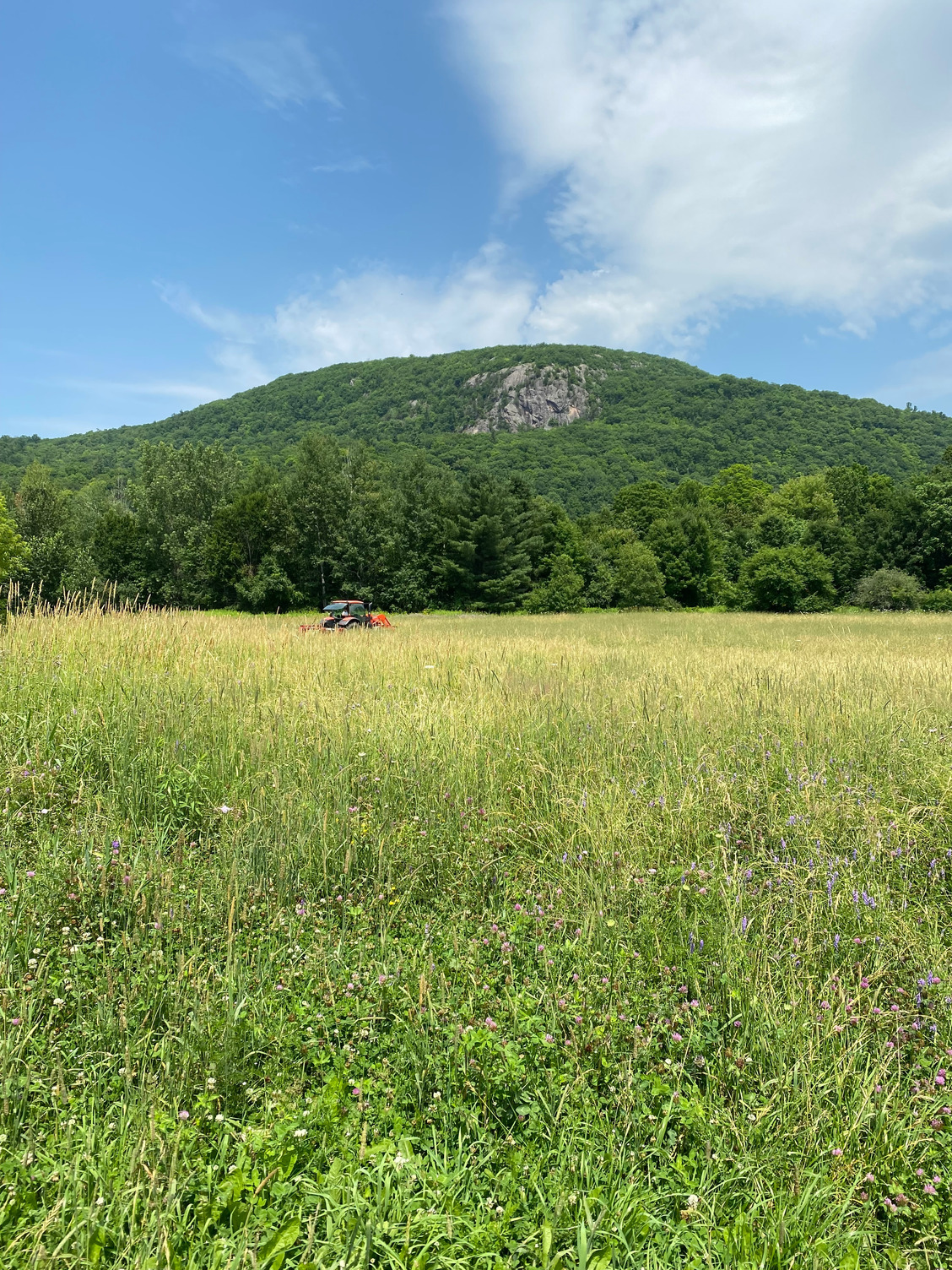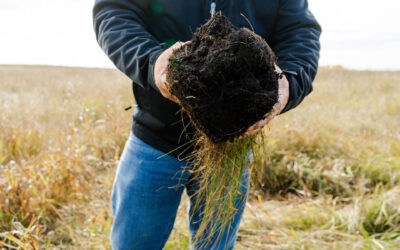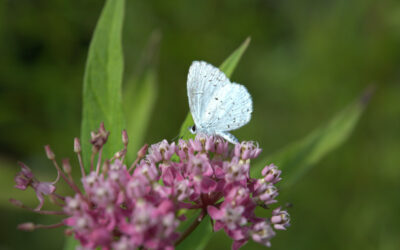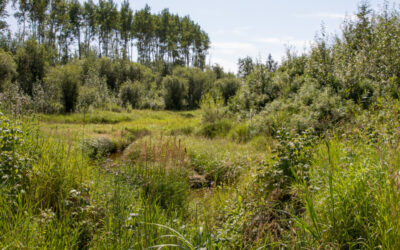With this support, ALUS continues to showcase how farmers are important participants in driving environmental resilience.

Delayed haying project undertaken in ALUS Outaouais. Allowing native grasses to grow later in the season provides habitat for species at risk and other wildlife.
TORONTO, ON, April 9, 2024 — ALUS is pleased to share that continued support from WWF-Canada’s Nature and Climate Grant Program, presented in partnership with Aviva Canada, has contributed to both organizations having a great impact in supporting environmental health and ecological resilience in Ontario and Quebec.
From 2022 to 2024, through the Nature and Climate Grant Program, ALUS was able to disperse $270,000 in funding to communities delivering the ALUS program. ALUS Elgin, ALUS Lambton, ALUS Montérégie, ALUS Norfolk and ALUS Outaouais have created 100.2 ha (247 acres) of projects in year one. The projects deliver vital ecosystem services, including water storage and filtration, soil stabilization, wildlife habitat and carbon sequestration.
“Rural communities are on the frontlines of managing biodiversity loss and climate change. ALUS is grateful to have the support of WWF-Canada to accelerate rural resilience, by supporting local solutions that benefit nature,” says Alyssa Cousineau, Senior Hub Manager, Great Lakes, at ALUS.
Funding from the Nature and Climate Grant Program has helped support projects like Ian McClatchy’s. Through ALUS Outaouais, Ian planted a double row of native trees and shrubs that will help slow wind and erosion, improving pollinator habitat and much more.
“WWF-Canada is thrilled that through our partnership with Aviva Canada, the Nature and Climate Grant program was able to support ALUS in their implementation of nature-based climate solutions in the agricultural sector across Ontario and Quebec. The ALUS approach in working with farmers and ranchers to address climate change and biodiversity on lands providing livelihood to farmers and food security for the rest of us is a critical part of what needs to be a collective effort to restoring nature,” says James Casey, Senior specialist, Restoration and Regeneration at WWF-Canada.
Collaboration helps drive shared understanding and outcomes. In that respect, WWF-Canada was eager to highlight the impact of ALUS’s work, sharing how Canadian Farmers are Addressing the Biodiversity and Climate Crises in May 2023, and demonstrating How to Help Wetlands Work for You in August 2023.
And in October of 2023, Megan Leslie, President and CEO of WWF-Canada, and Bryan Gilvesy, CEO of ALUS, appeared together as a part of the Net-Zero Leadership Summit hosted by Canada 2020.
Since 2021, WWF-Canada has supported ALUS communities in their mission to deliver local, farm-provided, science-based and market-driven solutions to environmental challenges, supporting both human and non-human communities. Through this collaboration, ALUS and WWF-Canada have funded 126.6 ha (313 acres) of environmental projects.
About ALUS
ALUS is a charitable organization that envisions a future where all farmers and ranchers produce ecosystem services from nature-based solutions alongside food and fibre to help solve the crises of biodiversity loss and climate change. Through its turn-key farmer-led, community-delivered program, ALUS supports more than 330 community leaders across 38 ALUS communities in helping over 1,600 farmers and ranchers build and actively manage 46,000+ acres of nature-based projects. These projects, like wetlands, grasslands and tree and shrub plantings, help capture carbon, keep lakes, rivers and streams clean, provide food and shelter for wildlife, and better prepare communities for extreme weather events like flood and drought.
ALUS also helps governments, businesses and philanthropic foundations invest in Nature & Climate Solutions on agricultural land to generate positive environmental, economic and social outcomes in the communities where they operate—one acre at a time.



